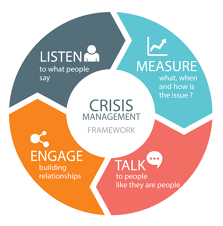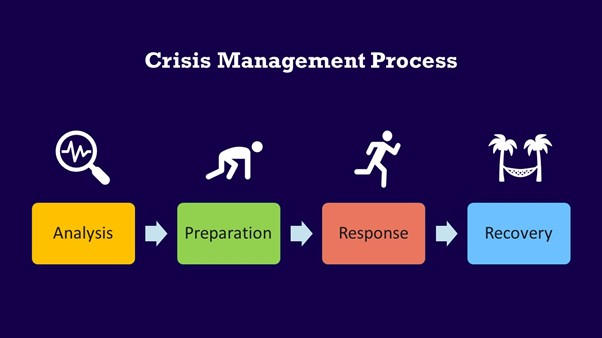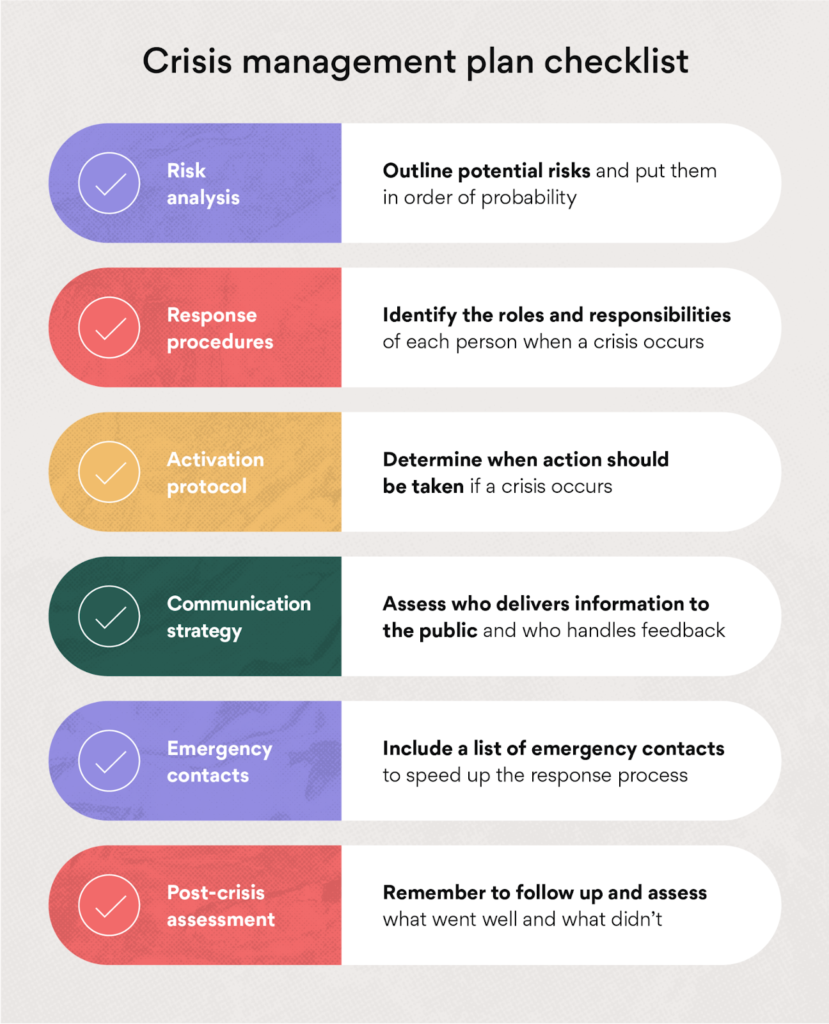Why Is Crisis Management Significant In Marketing?

While our immediate thought on hearing the phrase ‘crisis management’ pertains to natural calamities or some trouble that we have encountered in our personal lives, crisis management is an equally important term in the business niche. Several situations can classify as a crisis when you are a business owner.
No matter how well you have secured your business or brand from situations and factors that might contribute to any crisis in the future, it is only natural for business disasters to occur every once in a while. Therefore it is ideal to have a crisis management strategy and team for such unforeseen situations.
What is Crisis Management in Marketing?

Now that we have understood the need for a crisis management system in place, no matter how big or small your brand is, let’s look at what crisis management is in marketing.
Crisis management, also known as reputation management otherwise, is the practice of shaping the public’s perception of either an individual or a specific organization via information about it/them. This information is chosen to be intentionally shared with the audience or the customers of the brand. Social media has emerged as an effective arm in tackling crises for businesses these days. Several brands use Twitter, Instagram, and Facebook for crisis management marketing, quite effectively.
But at the same time, the nature of the social media platforms and the virality enjoyed by social media content are also challenging for businesses.
Importance of Crisis Management in Marketing
There are innumerable reasons for every business to have a crisis plan in place, some of the important ones being:
- A crisis management plan helps salvage your reputation as a brand with customers, competitive brands and businesses, and other industry leaders.
- It ensures your entire team’s mental and physical well-being, including all your employees.
- Having a sound crisis management plan will also helo you conduct business more peacefully while being focused on performing well in that specific niche since you will know that your brand is ready for any situation.
- It is also important to have a crisis management plan since it delegates responsibility. When an actual crisis occurs, each individual will be aware of their job in that situation.
What is the Crisis Management Process?

While it may seem like the crisis management process begins and ends with handling the crisis specifically, it is more than just that. Let’s take a look at its various steps:
Step 1- PRE CRISIS
The first step in the crisis management ladder is to prevent a crisis from taking place initially. A crisis management team is created or hired and trained in this stage. Exercises that deal with crisis management marketing are conducted with the team. Simultaneously, a crisis management plan is made, and implementation of that plan is practiced. Some brands also create rough drafts of crisis communication messages at this stage. This pre-writing can save a lot of time when a crisis takes place.
Step 2- MANAGEMENT
This stage prepares you and your team for dealing with the crisis whenever it arises. It also involves how the brand has to respond to the crisis. It can also be called the actionable stage of crisis management marketing. The brand contacts the stakeholders and the employees and disseminates a message to its customers.
Step 3- POST CRISIS
The third step in the process is known as the post-crisis stage. Though this stage has handled the crisis, it is still a non-negotiable step in crisis management marketing. The brand has a responsibility to contact its employees and customers, even after the crisis has subsided. Sending active updates to the customers and your team can be great. After the crisis has been handled, the brand should ideally sit with the crisis management team and review the plan or analyze the effectiveness of how the current crisis was managed.
How to Create a Crisis Management Plan?

- In order to create an effective crisis management plan, firstly identify all the possibilities that might lead to a crisis. This includes finances, personnel, organizational crisis, natural, technological, etc.
- Accordingly, make sure you also consider the impact of each type of crisis mentioned above.
- Next, consider what specific actions your brand needs to take to resolve each of these crises—review different crisis management methods.
- Develop proper plans for each type of crisis. Consider the time, tools, resources needed, people involved, how customers should be addressed, etc.
- Train your crisis management team thoroughly and revisit the plan. Constantly keep updating it.
It is always good to have a crisis management plan and team ready to continue your work as a brand when a crisis happens without diverting all your resources and attention to handling that specific crisis. This can hamper your other business functions in the long run. Have a legal advisor, PR person, human resources advisor, emergency management director, and crisis manager in your crisis management team.

FAQs
Business crises can be of various types, including- financial crises, personnel crises, technological crises, organizational crises, etc.
Crisis management prepares a brand or a business to respond to potential emergencies concerning the organization/ brand. Without a crisis management strategy as a part of your business plan, it would be extremely difficult to respond to customers and stakeholders in situations of potential emergencies.
Crisis management communication, also known as crisis communication, is the collection, processing, and dissemination of information required to address the crisis on a brand’s behalf. In simpler terms, it is the communication between the business and the public.
To efficiently manage a crisis, any brand or business must primarily identify the risks, define a plan, and establish a crisis management unit. Having a trained and experienced spokesperson is also important in such situations.
As per the National Crisis Management Framework, the 5 Ps of crisis management are as follows:
1. Predict
2. Prevent
3. Prepare
4. Perform
5. Post action assessment
Latest Blogs
Learn how to rank on AI search engines like ChatGPT, Perplexity, and Gemini by optimizing your content for authority, structure, and relevance. Stay ahead in AI-driven search with this strategic guide.
Explore the best healthcare SEO services for your medical practice. Improve online visibility and effectively reach more patients in need of your services.
Discover top social media agencies specializing in banking solutions, enhancing financial services and driving engagement.
Get your hands on the latest news!
Similar Posts

Artificial Intelligence
5 mins read
Enhance Your Writing Efficiency: Must-Have Content Writing Tools for Marketers

Marketing
5 mins read
9 Key Strategies To Increase Twitter Reach

Marketing
6 mins read